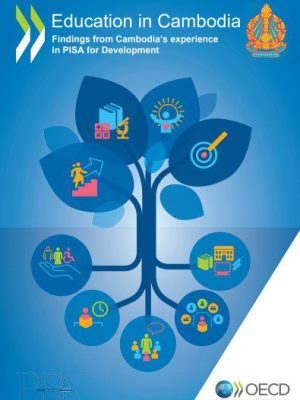Education in Cambodia
OECD / PISA-D and World Bank reports
Cambodia's Digital Economy
A report from 2019. We cannot influence much of the findings. But the lack of skills has major impact on all the findings. More young people into IT is essential.
- Less than 25% of companies have a website; – world median of 46%.
- 0.6% of population has fixed broadband; – 11.3% APAC average.
- Low uptake on digital financial services.
- Digital government is only just starting.
- “For Cambodia to benefit from the digital economy, it needs not only to invest in infrastructure but also to develop complementary regulations, skills, and institutions.”
- To read more about Cambodia as a digital economy.
OECD / PISA-D Education report
Education in Cambodia is an interesting report produced in 2018. It is a snapshot of students at the age of 15 – and compares them to others around the world.
Our prime objective is to help students get into Information Technology. The country cannot progress without those skills. Recognising the many problems of education raised in this report, helps us understand the background. We need to stay focused to achieve our goals.
Key points
- Educational standards are amongst the lowest – comparable with Senegal and Zambia.
- Standards are lower in rural areas compared to urban areas.
- Just 30% of young people beyond age 15 are still at school.
- 40% of students are behind track (repeating years).
- Student/teacher ratio and students per class are amongst the highest.
- 96% of students are satisfied with their lives – well above all averages.
- 64% of students say are satisfied and have good health.
- 32% say they are satisfied but have poor health. Far worse than any other country.
- School is regarded as a luxury – indicated by positive attitudes of students.
- Absenteeism is well below OECD and ASEAN averages.
Our summary of Education in Cambodia
Cambodia continues to recover from the devastating traumas of its recent history, because for many years an education system ceased to exist. The Ministry of Education (MoEYS) showed serious intent in attempting to improve matters by recently joining the PISA-D programme in order to “help the government and educators identify the main challenges for education policy”.
The programme measures Educational attainment, Academic performance, Health and well-being, and Attitudes toward school and learning.
A random sample of over 5,000 15-year olds from 170 different schools across the country.
The report measures performance in Reading, Mathematics and Science. The students in Cambodia rated well below OECD and ASEAN averages. The results are comparable with Zambia and Senegal.
Reading is singled out as being a problem, the weakness is said to be holding back improvement in mathematics and science.
Girls are better than boys at reading, however there is little difference between them for mathematics and science.
Health, well-being and attitude toward school.
These were measured, and highlights the many positive elements about education in Cambodia. This has been visible to ourselves and can be seen in our pictures.
It showed 96% of students were Very Satisfied, Satisfied or Moderately Satisfied with their lives (80% Very Satisfied/Satisfied) amongst the highest measured.
However 32% say they have poor health, by far the lowest measured of any country. This we see as a real concern.
The results noted the “students have a strong sense of belonging at school compared to students in other countries………above the ASEAN average”.
Students overwhelmingly “have positive views about their teachers, get along well with them, feel they are interested in them”. In addition teachers are usually available to give extra help if needed.
The “Classroom disciplinary climate” in Cambodia was well above OECD, ASEAN and PISA-D levels”.
Schooling is seen “as a luxury” and “despite studying in less resourced schools“ students show “a feeling of gratefulness of being in school. This is clearly evident in their positive attitude towards school and learning”.
“Teacher training in Cambodia was very short in duration and had a low entry requirement”.
In conclusion the report states “Cambodia needs better resourced schools and effective teacher training”.
See here for the complete report for Education in Cambodia
To see how you can become inolved with our work
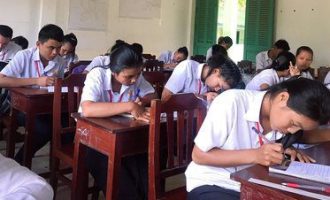
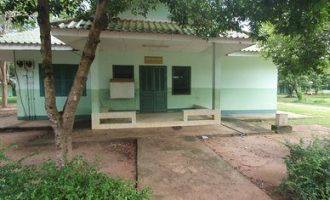
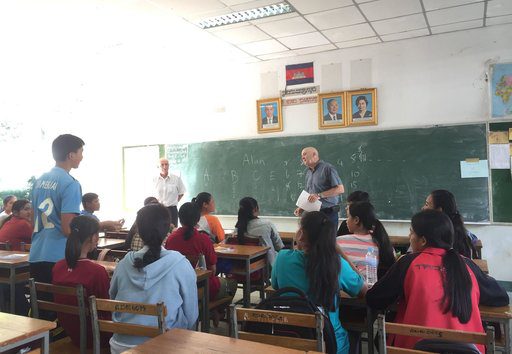

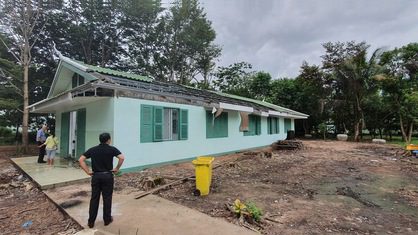
Would you like to start a project with us?
If you have seen the project(s) we have done so far and think you need help in moving forward with Information Technology projects for the School, Teachers or Students, then please get in contact with us.
We look forward to hearing from you.

